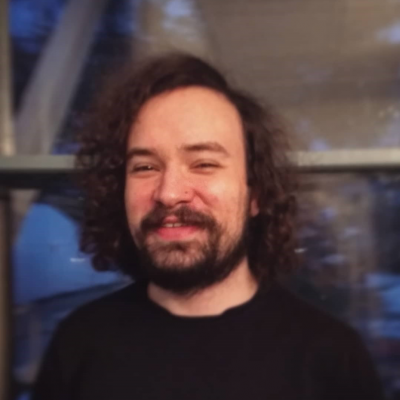Student Spotlight: Manuel Berduc

February 18, 2019
Manuel Berduc is a doctoral student in history from Buenos Aires, Argentina and Upstate New York. After pursuing interests of theater, psychology, and philosophy while studying at the Universidad de Buenos Aires and University of Minnesota-Twin Cities, he chose to attend Cornell to study Latin American and European intellectual labor history.
What is your area of research and why is it important?
I work on the history of socialism since the French Revolution with a focus on aesthetic and scientific productions. I look at the intellectual productions of different socialist traditions to understand the role of intellectual labor under socialism and the contradictions involved. If one of the major promises of different socialist traditions has been that we will have more time on our hands under an ideal communist society, my question is: What did socialists do with their free time? What sorts of novels, paintings, or scientific treatises did they write and why? How were these similar to or different from those of the societies they lived in? My specific focus is on socialist “forms” in development before the hegemony of the Russian Revolution on science and art for socialism, and some of the forgotten characters that took up these questions in practice while they sought to change society.
What inspired you to choose this field of study?
After enjoying theater, psychology, and philosophy as an undergrad, history was the one field where I could explore and historicize how the industrial revolution has affected our ways of thinking, enjoying, suffering, and living through an integrated manner by studying culture and intellectual history in one project. My interest started in trying to understand how capitalism creates the very conditions that exploit us and later also pathologizes the effects of those conditions through an individualist lens, or, rather, how capitalism affects consciousness. My current project, then, is to begin looking at the intellectual history of the scattered, varied, and rich texts left behind by those in the 19th century who began contemplating this very question and provided a wide variety of answers ranging from aesthetics to science, and in some cases, both.
Where did you study with your Graduate School Research Travel Grant?
I visited the Hoover Institution to look at their Okhrana Archives to look at the records of the secret police of the Russian empire to look through records and files on prominent Russian revolutionaries before World War I. The best result was finding information on one particular individual, one of the most dangerous in Europe in his day, whose life spanned three continents and who was both a scientist and a painter.
How important was obtaining a Research Travel Grant for your research?
The Research Travel Grant was incredibly important for my research; I was able not only to verify a lot of speculative information I had, but also to browse through thousands of pages of formerly secret documents that, to me, tell an untold story.
What did this grant allow you to do that you might not otherwise been able to?
Above all, this grant allowed me to visit the Hoover Institution’s archives before their closure this past September until 2020. This was incredibly important because now I’ll be able to use the information gathered from the archives to determine how to better frame my project and where to travel to next for my future research trips.
What are your hobbies or interests outside of your research or scholarship?
My first passions were theater, music theory, and art, and I’ve continued (when possible) to pursue all three. When I can, I integrate all three into my research when I am able to read or write about aesthetics.
Why did you choose Cornell to pursue your degree?
Cornell’s graduate program encourages a significant level of interdisciplinary work which has been incredibly rewarding for my project. My committee here has also been incredibly welcoming, helpful, and have encouraged me to follow all of my wacky ideas, which has helped me feel comfortable exploring odd avenues in my research.
